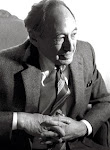" Of course, we are assured by the technocrats that once we reach the promised land of Newfanglia the opportunities for leisurely enjoyments-at least in the 'long run' after all the economic disturbances have been overcome-will be immense. To the engineering cast of mind, work, any kind of work, is input only; it is the effort expended in producing output. Since all input is regarded as a 'disutility', and all output as a 'utility', efficiency consists of reducing the ratio of input to output. If the engineer continues thus to lighten the burden of man's toil, the day must dawn when the curse of Adam is thrown off, and man is forever freed from the daily grind. He need thereafter do only the sort of work that interests him, and then only when he feels the inclination. Surely a dazzling prospect for man!
But what of the innate needs of ordinary men?"
"Televised lectures would be supplemented by auto-instructional programmes in the homes as an efficient and highly economical substitute for conventional tutorials and seminars. Indeed, in view of the existing technological possibilities, it is legitimate to doubt whether the universities as we know them today, as seats of both teaching and learning, will survive the turn of the century.
Yet if people are to be taught more effectively in the future while employing but a fraction of the teaching resources required today, there will also be a loss, a loss of human contact. Just as television has already succeeded in fragmenting the family, and in impoverishing the common fund of mutual experience through which the sense of family in nourished, so also must television apparatus and the teaching machines that are being installed in our universities and our schools, serve in time to isolate people further."
"Generations have passed, and, like the woods and the hedges that sheltered it, the rich local life centered on the township, parish and village, has been uprooted and blown away by the winds of change. Today no refuge remains from the desperate universal clamour for more efficiency, more excitement, and more novelty that goads us furiously onward, competing, accumulating, innovating-and inevitably destroying. Every step forward in technological progress, and particularly in the things most eagerly anticipated-swifter travel, depersonalized services, all the push button comforts and round the clock synthetic entertainments that are promised us-effectively transfers our dependence upon machines and, therefore, unavoidably constricts yet further the flow of understanding and sympathy between people. Thus in the unending pursuit of progress men are driven even farther apart and come to depend instead, for all their services and experiences, directly upon the creations of technology."
Technology & Growth The Price we Pay, 1969
E.J. Mishan
(Joshua Ezra Mishan (Manchester, 1917) is a British economist who is best known for his book The cost of economic growth(1967).)
April 16, 2009
Subscribe to:
Post Comments (Atom)




This was a used book find at a local grocery store for a dollar. I find many gems of transience this way. From what i can tell, Mishan is a self righteous crank who staggers in the wake of traffic jams and man's lack of calloused hands. I actually found Sturt quoted in this book. He does have some genius insights on 'Growthmania' and its impacts on humanity, the economy, and even the earth. He's a brit, and i cant find much about him online, but my second edition('71) stained copy of 'Technology and Growth' does just fine.
ReplyDelete